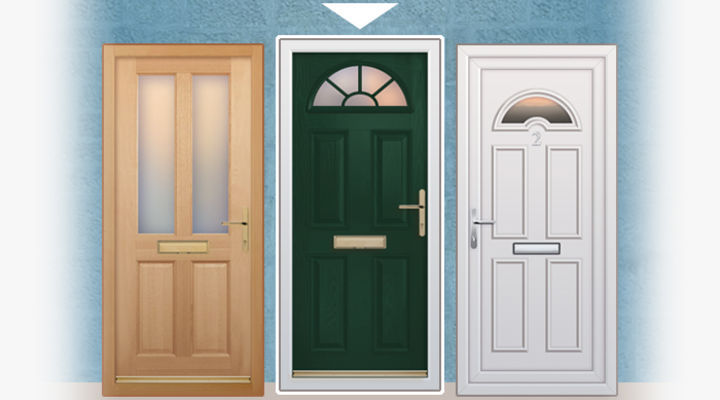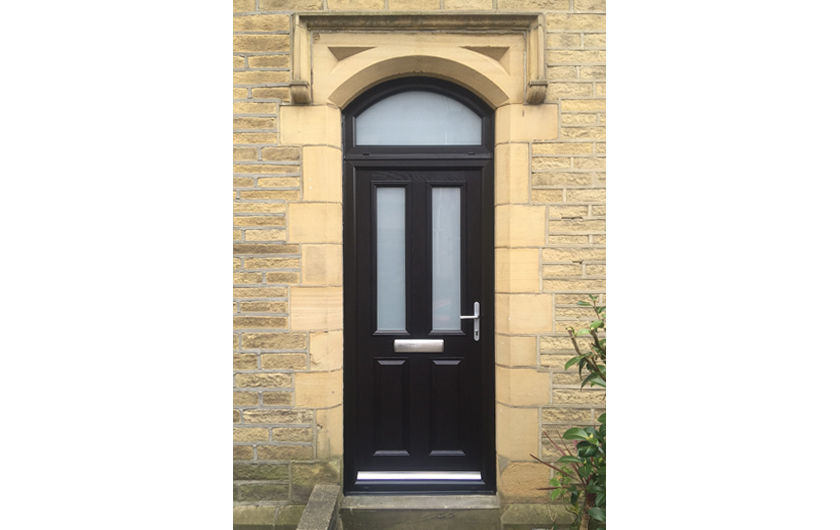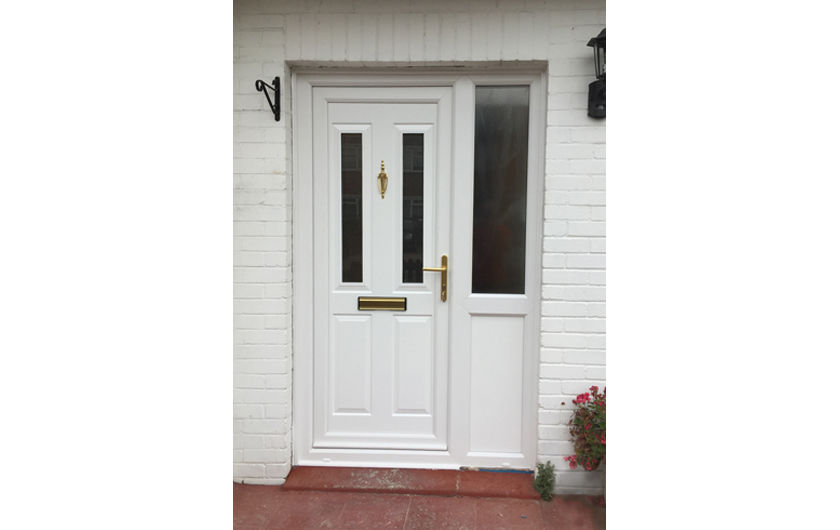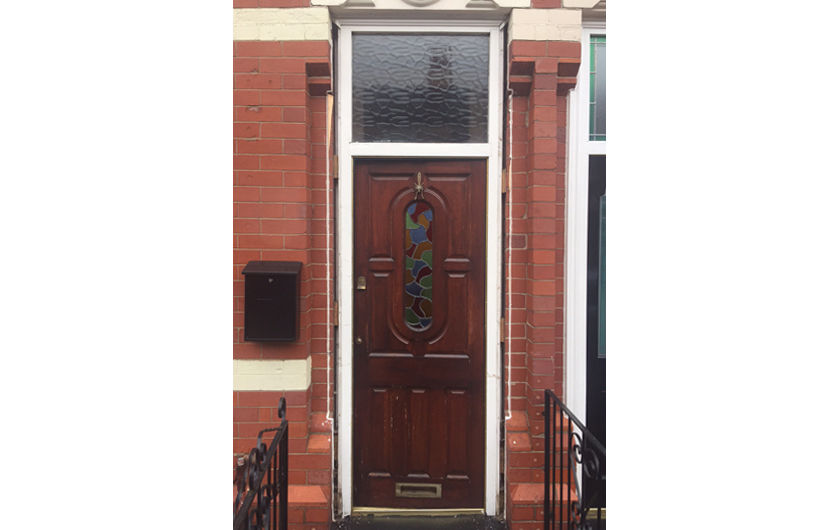Guide to Choosing Composite vs uPVC vs Wooden Doors

It’s time to choose a new door. You want to know what’s the cheapest, or what door offers the best value for money? With different types of doors on the UK market, it may be hard for you to decide! With this guide, we’ll help you to make an informed choice, by comparing the three most common door types – composite, UPVC and wood; and by pointing out which one of these is best for a certain need, be it maintenance or budget!
Composite vs UPVC vs Wooden Front Door Pros & Cons

Composite
|
Pros |
Cons |
|
Durability: Sturdy and weather-resistant |
High cost: Generally more expensive than UPVC or wooden doors |
|
Appearance: Has a wood-like aesthetic |
|
|
Options: Many styles and colours |
|
|
Low-maintenance: Easy-to-clean and no repainting required |
|
|
Densely multi-layered: Perfect for retaining warmth |
|
|
Weather-resistant: Does not absorb moisture |
|

UPVC
|
Pros |
Cons |
|
More affordable: Cheaper on average than composite or wooden doors |
Less natural appearance: Might not appeal to everyone |
|
Versatility: Easy to replace panels |
Less options: Fewer colour choices than composite or painted wood |
|
Low-maintenance: Easy-to-clean and no repainting required |
|
|
Densely multi-layered: Perfect for retaining warmth |
|
|
Weather-resistant: Does not absorb moisture |
|

Wood
|
Pros |
Cons |
|
Appearance: Natural and timeless |
Regular maintenance: Needs to be painted or varnished to look like new |
|
Diverse: Durable hardwood or lighter softwood |
Not weather-resistant: Susceptible to decay from the elements and insect damage without protection |
Which is the best door material UK home owners are choosing?
- For range: There are more styles to choose from composite doors vs UPVC, and while wooden doors also come in a wide choice of styles, composites are favoured for their long-term benefits.
- For affordability: It is generally cheaper to buy a UPVC door vs composite or wood, with prices also low as £260. It is possible to get wooden doors for cheaper, but long-term benefits such as low maintenance and weather resistance make UPVC a more attractive choice.
- For endurance: Equally, a composite or UPVC door benefits UK climate conditions better than wood, which without protection can rot and deteriorate with prolonged exposure.
- For thermal efficiency: Composite, UPVC and thicker wooden doors are all multi-layered, but composite and UPVC use denser cores to retain more heat, and thus save more energy.
Which lasts longer – composite doors vs UPVC vs wooden?
- Composites have an average lifespan of 30 years.
- UPVCs can last for up to 20 years.
- Wood can last anywhere from 15 to 30 years.
- Of course, it all comes down to quality, proper care of each door, and the trials each one faces - from daily use to changing weather.
What should I expect to pay for a composite door vs UPVC vs wood?
- A composite can cost at least £600 for a solid style to around £1300 for a three-quarter glazed style. A high-end composite Rock Door can cost as much as £1900.
- UPVC is the cheapest on average, starting at around £550 for a solid door (including sash & frame), up to £800 for more elaborate designs.
- Wooden doors widely vary based on what type of wood is used. It is possible to buy a solid external wooden door for as little as £180, while a more elaborate wooden door can cost as much as £1800. You should expect to pay more than a UPVC of similar style, but not quite as much as a composite.
- These averages are based in doors without a fitting service or extras, such as colour finishes or side panels. Fitting can add an additional £300 to £500 onto the cost.
Tips to choosing the right style
- Consider the style of home the door will be fitted into – needless to say, traditional doors work best with traditional homes, and choices are available to compliment period properties, such as 1930s style doors for homes with an Edwardian aesthetic.
- Colour plays a big part in how well a door may sit within your home – dark heritage finishes for traditional styles, and greys for modern, with lighter shades inviting a calmer tone.
In summary - Composite vs uPVC vs Wooden Doors
|
|
Composite |
UPVC |
Wood |
|
|
|
|
|
|
Appearance |
Wood-like grained GRP skin |
Smooth/grained plastic surface |
Natural grained surface |
|
Colour range |
Large |
Small |
Large (painting required) |
|
Styles range |
Traditional to modern |
||
|
|
|
|
|
|
Average cost |
£600 to £1300 |
£550 to £800 |
£180 to £1800 |
|
Maintenance requirements |
Low |
Low |
High |
|
Average lifespan |
30 years |
20 years |
15 to 30 years |
|
|
|
|
|
|
Energy efficiency |
Good |
Good |
Fair |
|
Weather resistance |
Good |
Good |
Fair |
|
Security |
Good |
Good |
Good |
Ready to choose your new door?
To get started, you can:
- Give us a call free on 0800 910 1122.
- Send a Quick Message or visit our Contact Us page.
- Have a look at hundreds of doors online, customise your choice and choose to have it Fully Fitted or Supply Only.
or

